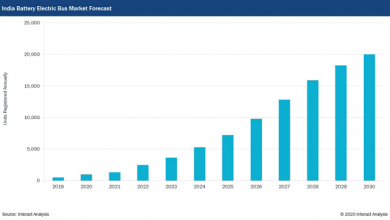Li-S batteries are safer than Li-ion batteries

Excerpts from discussion with Vani Dantam, COO, NexTech Batteries. Vani is a global executive with 40+ years of experience in Energy and Transportation industries. Most recently managed the project development for a multi GWh Li-ion Battery Plant in India to serve e mobility and utilities industries.
Can you tell us in brief about Nextech Batteries?
NexTech researches, designs, builds, and sells Lithium-Sulfur (Li-S) battery cells. Li-S batteries have the needed characteristics, features and potential to replace Li-Ion battery cells in most applications.
NexTech Batteries was founded in early 2016 upon the exclusive licensing of the rights and patents to the Li-S battery technology developed at Lawrence Berkeley National Laboratory (LBNL). This powerful and disruptive Li-S technology was the result of more than 14 years of research under the direction of Dr. Elton Cairns at LBNL. Our multidisciplinary team of 28 (4 PhDs) has built our own superior technology based on this foundation. Through continued innovation we have now amassed a large patent portfolio, trade secrets and manufacturing expertise.
Our Li-S batteries are characterized by superior performance, lower weight, carbon footprint and cost, better safety, and higher sustainability, versus other battery chemistries. NexTech has successfully demonstrated energy density of 400 Wh/kg in our current prototype multi amp-hour pouch cells. We are continuing to work on improving our cycle life at higher energy densities.
We have a facility in Carson City, NV, which houses our pouch cell fabrication prototype line, dry-room, and clean-room facilities. We are negotiating with global partners to adapt our technology to different global applications.
Can you tell us about Lithium Sulphur batteries and how it will help EVs?
Stronger regulations and growing consumer interest have accelerated the market shift toward EVs (passenger vehicles, buses, trucks, and scooters). By 2030, more than 50% of new vehicles sold globally will be electrified with adoption of battery EV (BEV), the vehicles with the highest battery capacity, will increase by an average of 25% per year through 2030 (BCG-case for circular economy).
This rapid electrification of the automotive sector is creating a surge in demand for batteries, however, the battery is the single most expensive part of an EV, currently making up between 35-45% of total cost, so it is essential that the battery offers better economics to ensure future profitability for the OEMs.
It is true that battery costs have been declining over the past decade with the incumbent Li-ion battery chemistry having fallen by 50% over the last few years, but now incremental cost reductions for this chemistry are reaching their chemical and packaging limits in terms of cost and performance and exhibiting safety issues. Li-s technology is at the beginning of the cost and performance improvement curves and is considered the leading technology for the EV market. Because Li-S technology has much higher theoretical energy densities than the current Li-ion technologies, there is enormous potential for weight reduction and range improvement while reducing the costs.
Will it be safer compared to Li-ion batteries?
Li-S batteries are safer than Li-ion batteries. Li-ion batteries are inherently dangerous as the cathode materials, when heated, produce oxygen which self-sustains a fire, known as thermal runaway (happens when cathode and anode short due to melted separator). With Li-ion technology it is always a case of managing the risk, not eliminating it. Also, the fires that do occur cannot be extinguished by conventional means and must be left to burn until all internal oxygen is consumed.
Li-S has no oxygen producing materials in the cathode and hence is not susceptible to thermal runaway or exploding.
Do you have India presence? Or Are you considering India, for manufacturing Li-S batteries?
We do not have a presence in India yet. We are actively seeking manufacturing partners in India. We are open to both Licensing and JV manufacturing prospects in India. We are currently building cells for BIS certification in India.
How has the response to Li-S batteries from the automotive sector been so far?
The response has been very positive due to the potential to increase the range while reducing weight and cost due to both lower materials and manufacturing costs. The technology also offers a lower carbon footprint with much better sustainability.
Are there any EV manufacturers using Li-S batteries?
Not yet. It might be best to introduce the technology in 2 and 3 wheelers first – before converting automobiles and commercial vehicles and buses.
Published in Telematics Wire





